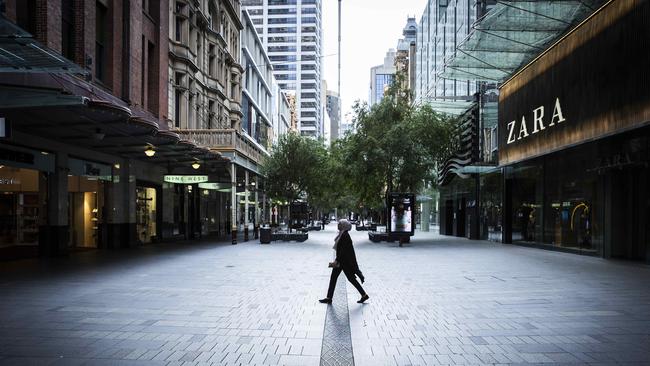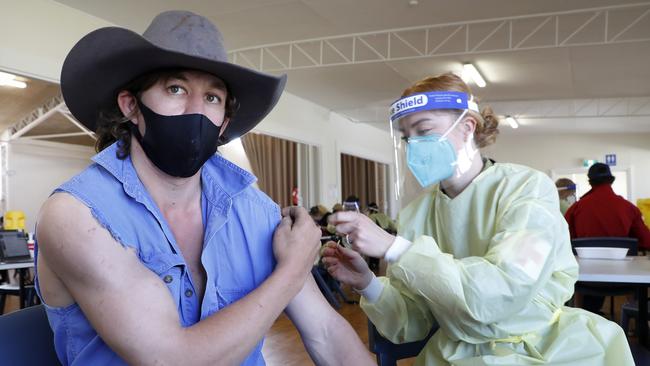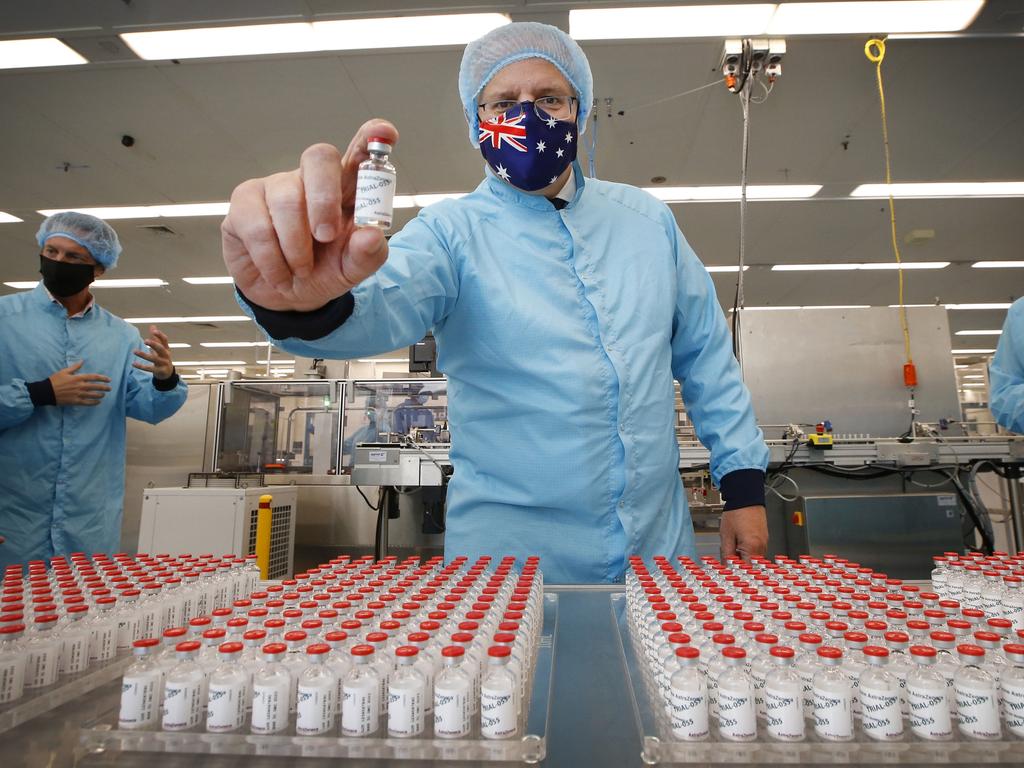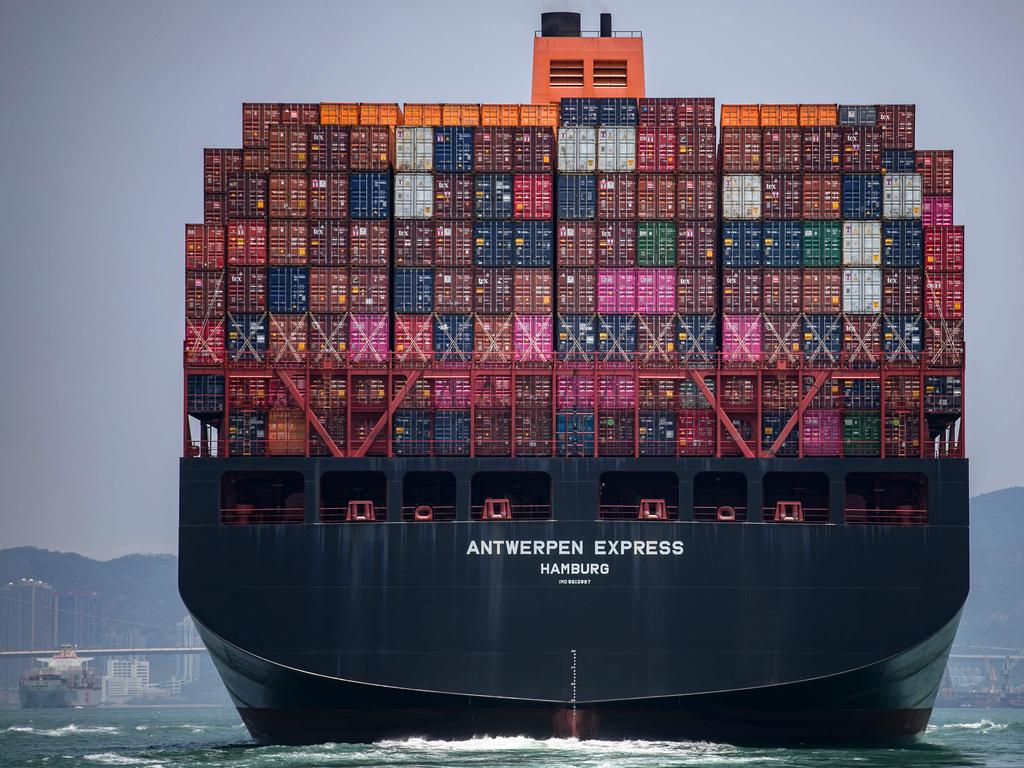
Policy errors were made by politicians and officials during the pandemic, but Team Australia emerged better than most rich countries.
As eminent economists have shown, the budgetary response gets an A, while vaccine procurement was a debacle – so the financial, social and mental health costs the nation suffered were far greater than they should have been because of the inoculation “strollout”.
With the benefit of hindsight, as the Covid-19 response inquiry found, those blunders should be used to inform better crisis management, rather than weaponised as political hits.
Jim Chalmers says “big mistakes were made”, which have “added fuel to the inflationary fire”.
The inquiry’s rear view supports the Treasurer but he’s naturally taking liberties when in the next breath he declares “the report, and the progress we’ve made since, are proof of why our responsible economic management is so important”.
Politics is a contact sport and with an election in the air as often as a PM with an upgrade, the policy stoush is brutal and no holds barred.
But let’s get a grip: global inflation has helped the budget, Chalmers’ effort in May was “slightly expansionary” in the eyes of Reserve Bank staff and deficits, as REM put it in song, are humming all the way to Reno.
The Morrison government’s early responses to the health crisis was to put the economy into hibernation, protecting lives and livelihoods, were a shot in the dark.
Over three weeks in March 2020, the Coalition announced three economic stimulus packages totalling an estimated $213.7bn.
The thinking was it was better to do too much than too little with the fiscal elixir.
Treasury secretary Steven Kennedy would later say these policies were designed to be timely, temporary, targeted and tailored to the shock.
But Josh Frydenberg’s budgetary response, especially on the $89bn JobKeeper and support to businesses, went on for too long and cost too much, while the RBA kept rates at near zero for too long.
“Unusually for a recession, household disposable income and profits increased during 2020,” the inquiry found.

Because they weren’t able to spend or travel in a locked-down nation, Australians accumulated $300bn in savings over and above normal thrift.
Once the economy reopened, the wave of spending crashed into supply snarls and inflation took off, especially in the building industry.
Economic modeller Chris Murphy estimates that the initial, “alert phase” response was proportionate and reduced the jobless rate by 2 percentage points.
But peak inflation, which hit 7.8 per cent in December 2022, could have been reduced by 2.1 per cent “if macroeconomic policy settings had better matched the health restrictions”, and the RBA had started lifting interest rates a year earlier, in May 2021.
Murphy estimates that, for the average small business operating at the eligibility ceiling for JobKeeper, it alone provided on average $2 compensation for each $1 of lost profits.
The total increases in fiscal expenditure from the start of the pandemic added 2.4 percentage points to annual inflation at its peak, with monetary policy over 2020-21, when the cash rate was cut to 0.1 per cent, adding a further 0.6 percentage points.
In future, the panel was told, we should aim to make no-one worse off, but also no-one better off as a result of pandemic supports.
As well, the inquiry found the design of supports in the initial phase could have been “improved in ways that would have increased value for money for taxpayers and supported the subsequent economic recovery”.
“Excluding temporary migrants and foreign companies from JobKeeper, exacerbated skills shortages and inflationary pressures during the economic recovery,” it said.
The inquiry said the Coalition’s HomeBuilder scheme, a $25,000 freebie to build a new home or renovate an existing one, was ill-conceived and poorly timed.
“The HomeBuilder program created excess demand in an industry facing supply constraints,” the inquiry found.
“This has been a significant contributor to inflation coming out of the pandemic, and the program’s focus on renovations rather than new builds added to the general housing shortages.
“These types of demand-side stimulus measures are largely not appropriate in pandemics where industries are facing supply constraints.”
The inquiry highlighted the consequences of delays in securing Covid vaccines: where some countries had a demand problem, we endured a supply fiasco over various stages of the rollout.
“These procurement delays ultimately affected the timing of the vaccine rollout and prolonged restrictive public health measures that had by then been in place for over a year,” the inquiry said.
“This meant our staged reopening occurred months later than it otherwise could have, with a direct economic cost estimated at $31bn.
“There were also unforeseen health consequences to this timing, because it meant we transitioned to ‘living with Covid-19’ as the Omicron variants became prevalent in the community.
“This led to our highest ever number of case numbers and deaths from Covid-19, particularly among vulnerable populations and groups less likely or as yet unable to be vaccinated.”
The bean counters come out of this period in reasonable shape but some of our leading health officials, in the judgment of Steven Hamilton and Richard Holden, score a big fat F.
Remember, when Morrison said “it’s not a race” on getting the vaccines here?
Australia’s vaccine procurement was not only the greatest failure of the pandemic, the economists argue in a new book, “it was arguably the greatest single public policy failure in Australian history”.
Priceless.






